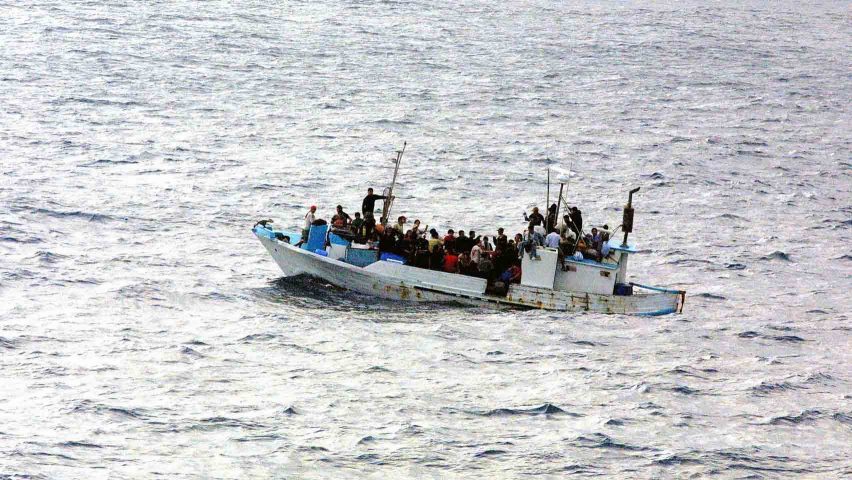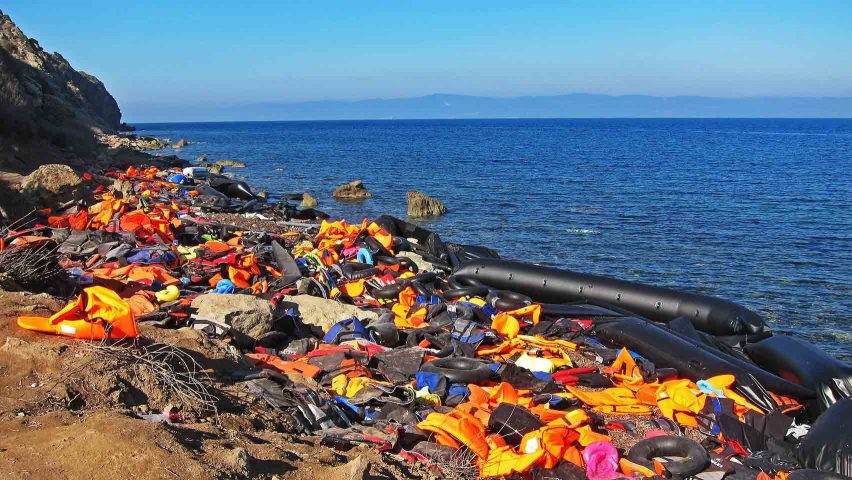
Greece plans floating sea barrier to keep out refugees
Greece has been criticised for plans to erect a floating barrier of nets on the border with Turkey in the Aegean Sea to deter people crossing by boat.
Pylons will be sunk into the ocean floor to create a 1.1-metre-high wall of nets, with half a metre of the barrier above the surface of the sea. Flashing lights will top the 1.7-mile-long wall, which the Greek government has budgeted €500,000 (£424,000) to build.
Sea wall will pose danger to refugees
Human rights watchdogs have condemned the project. Amnesty International deputy director for research Massimo Moratti said the floating dam would target asylum-seekers and refugees and "lead to more danger for those desperately seeking safety".
"The plan raises serious issues about rescuers' ability to continue providing life-saving assistance to people attempting the dangerous sea crossing to Lesvos," said Moratt.
"The government must urgently clarify the operational details and necessary safeguards to ensure that this system does not cost further lives."

In 2019, the International Organisation for Migration (IOM) recorded the death of 66 people taking the eastern Mediterranean sea route to Europe.
The United Nations and European Union have reminded Greece to abide by international law. "Every state, including Greece, has a legitimate right to manage their borders," spokesperson for the United Nations High Commission for Refugees (UNHCR) Boris Cheshirkov told the Greek Reporter.
"But those that are coming across the sea with the intention of seeking asylum, safety, they have a fundamental right to do so," he added.
"We're taking every measure to protect our borders"
Greece's minister for migration and asylum Notis Mitarakis went on the radio to defend the 1.7-mile fence that will be built off the island of Lesbos in the Aegean sea.
"It will send the message that we are not a free-for-all place where anything goes, that we're taking every measure to protect our borders,” Mitarakis told local radio station Thema 104.6.
Migrants seeking asylum in Europe have been arriving by boat fleeing war-torn countries including Syria and Afghanistan. Turkey has already erected a three-metre-high wall along hundreds of miles of its land border with Syria.
Last year, Greece recorded nearly 60,000 people arriving on its shores by sea. Greece's asylum system has been overwhelmed as other European countries tighten their borders.
Numbers of arrivals in Greece had dropped since the height of the migrant crisis in 2015, but boats began arriving again in summer 2019.
Now 36,000 people, including children, are currently being held in overcrowded and dirty refugee camps originally designed to hold just 5,400 people across five Greek islands.
The design community has responded to the humanitarian crisis with inventions such as a portable toilet to keep women in camps safe at night. Artist Achilleas Souras made an installation made from discarded life jackets collected from the shore of Lesbos to demonstrate the plight of people stranded there.
In the US, president Donald Trump came to power in 2016 promising to erect a border wall between America and Mexico. The administration now plans to build a wall of steel slats in a project that has seen costs have ballooned to $33 billion (£25.5 billion).
The main image is by Gerd Altmann from Pixabay.